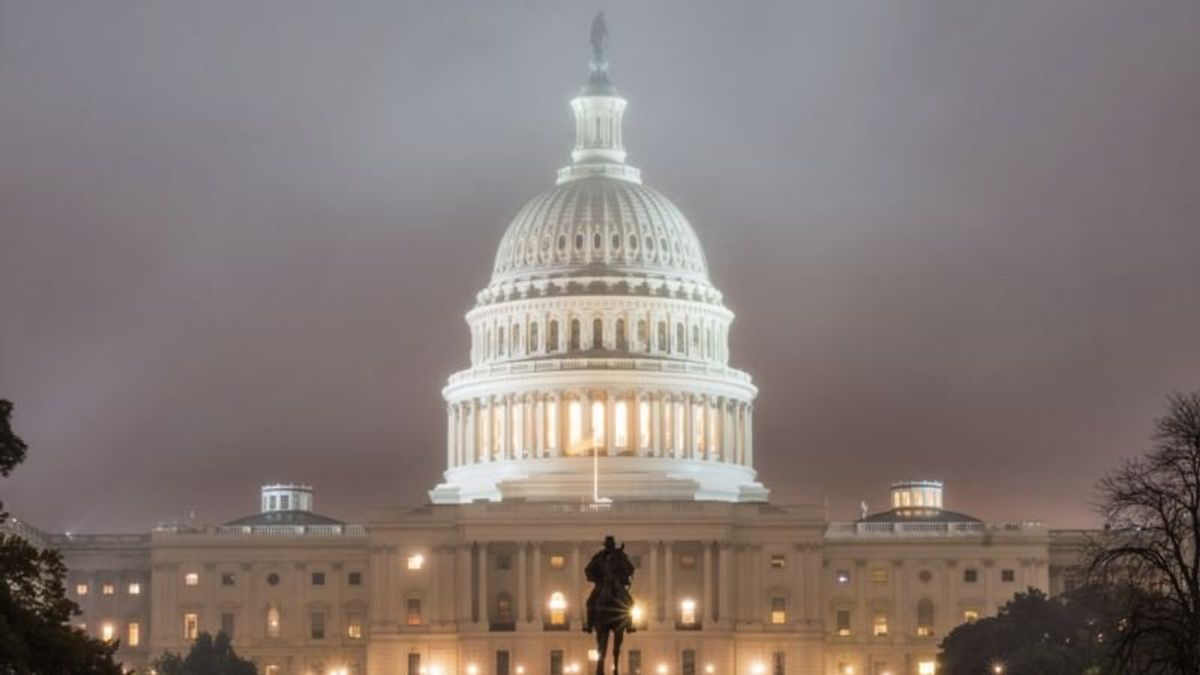
Judicial Nominations, Congressional Probes Likely to Flourish in 2019
Judicial Nominations, Congressional Probes Likely to Flourish in 2019

WASHINGTON —
A bolstered Republican Senate majority will facilitate U.S. President Donald Trump's push to remake the federal judiciary even as Congress as a whole returns to political gridlock beginning next year, observers say.
While Democrats won control of the House of Representatives in midterm elections earlier this month, Republicans boosted their Senate majority from 51 to 54 seats in the 100-member chamber, with only one contest, in Republican-leaning Mississippi, yet to be decided.
Beginning in January, Democrats will be able to use their House majority to block any legislation to which they object. But in one critical area, judicial nominees, Republicans will have a stronger hand to confirm Trump’s picks for lifetime appointments to the federal bench and make the judiciary far more ideologically conservative for years, perhaps decades, to come.
“While most things the Senate does need to get 60 votes to overcome a filibuster, nominations only need 51 votes,” Molly Reynolds, a governance studies fellow at Washington‘s Brookings Institution, said. “When you have 53 votes (Republicans have just gained another Senate seat in a Mississippi runoff election), that gives you more of a margin for error.”
‘Judge factory’
“The Senate has become a judge factory,” American Enterprise Institute resident scholar Norman Ornstein said. “[Republican Majority Leader Mitch] McConnell is bringing up a substantial number of judges. With 53 [Republican senators], you can withstand one, two, or even three defections (Republican ‘no’ votes), and still get it done. So for McConnell, this is a substantial amount of breathing room.”

Lawmakers have signaled they are coming to terms with a Congress that will be politically divided and require bipartisan cooperation to send legislation to the president’s desk.
“Marshaling resources against the opioid crisis, reforming Dodd Frank [financial regulations], funding our armed forces, taking care of our veterans…are some of the things we have done in this Congress on a bipartisan basis,” McConnell, who represents Kentucky, recently tweeted.
In an opinion piece for Fox News, the majority leader wrote, “Looking ahead to the coming year, there will be no shortage of opportunities to continue this impressive record of cooperation across the aisle and across the Capitol.”
‘Check on Donald Trump’
For their part, Democrats are not dismissing bipartisanship, but are making clear they intend to flex their newfound political muscle.
“There is now a check on Donald Trump, and that is great news for America,” Senate Democratic Minority Leader Chuck Schumer of New York said at a post-election news conference.
On Twitter, Schumer wrote, “We have tremendous unity in our caucus…Democrats are going to be relentlessly focused on the issues that matter most to the American people.”
“Divided control of the two houses of Congress is not a recipe for [producing] major legislation over the next two years,” Reynolds said. “There will be some things they work together on, perhaps infrastructure, perhaps prescription drug prices. But by and large, I expect the two chambers to be operating on different playing fields.”
The year 2010 saw the mirror image of the 2018 midterm election results. In 2010, Republicans won control of the House of Representatives and used it as a check on then-president Barack Obama, a Democrat, as well as what was then a Democratically-led Senate. Legislative gridlock and a series of partial U.S. government shutdowns ensued beginning in 2011.

“Just as in 2011 and 2012, we’re going to see almost no progress on the major issues facing the country, with one possible exception, [improving U.S.] infrastructure, where the interests of House Democrats and the president may come together,” Ornstein said.
Investigations expected
But differences between 2019 and 2011 are likely, given Democrats’ stated intention to investigate the Trump administration.
“I expect Democrats to spend most of their time on oversight and engaging in a wide range of investigations, some of which will target President Trump personally as well as the conduct of the executive branch over the last two years,” Reynolds said.
“This time around, Democrats in the House are not going to instigate a [government] shutdown. We may get a shutdown in the coming months but it will come from Donald Trump insisting on full funding for his [border] wall,” Ornstein said, adding. “[Congressional] investigations are going to bring a great deal of tension.”
Trump remains combative on the ongoing Russia probe and is warning of consequences if House Democrats open the investigative floodgates, recently tweeting, “The prospect of Presidential Harassment by the Dems is causing the Stock Market big headaches!”
Changes in party control of one or both houses of Congress occurred in 2007, 2011, 2015, and will occur again in 2019. Throughout it all, Congress has suffered low approval ratings from the American people, a situation that is unlikely to improve anytime soon.
“We’re going to have sharper partisan edges in the body, a lot of partisan and ideological combat, tribal combat, in the coming years,” Ornstein said. “It’s hard for me to imagine that Americans are going to feel better about things.”
“Gridlock is likely to keep most Americans not terribly happy with how Washington works,” Reynolds said.
 Trump’s Ex-Lawyer Expected to Plead Guilty to New ChargeNext Post52% of Americans Would Be ‘Very Comfortable’ with Woman President
Trump’s Ex-Lawyer Expected to Plead Guilty to New ChargeNext Post52% of Americans Would Be ‘Very Comfortable’ with Woman President





